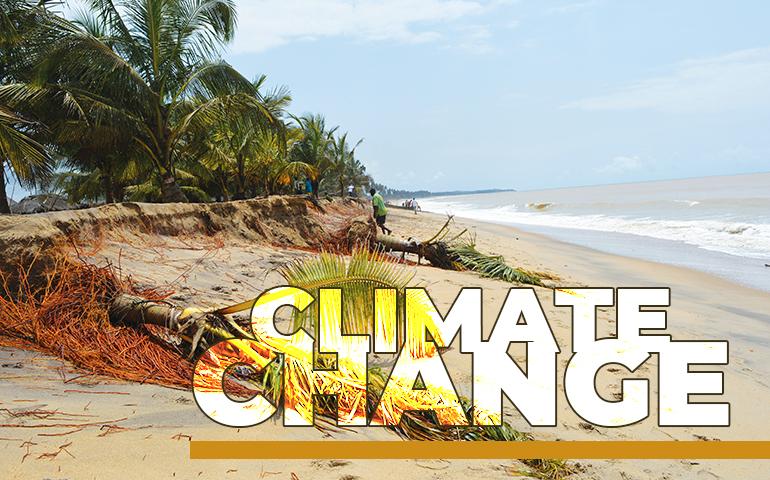Africa Centre of Excellence in Coastal Resilience |  University of Cape Coast
University of Cape Coast

Development Challenges
Climate change represents a major threat to coastal ecosystems and communities. In many areas around the Africa‘s coast, the combined projected threats of sea level rise, increased temperatures and reduced rainfall will place unprecedented stress on species, ecosystems and human settlements and industries. Climate change and variability have significant future and immediate consequences for the world’s coasts, the goods and services provided by coastal ecosystems, and coastal inhabitants. Accelerated coastal erosion, loss of land and property, flooding, saltwater intrusion, shifts in the distribution and abundance of valuable marine habitats, species and biodiversity, and the accelerated spread of exotic and invasive species are major issues resulting from the impacts of climate change. Other important factors include increased mortality, loss of coastal wetland ecosystems, decline in fish catches and productivity, ocean acidification for instance has potential widespread effects on marine ecosystems. Therefore the ability of marine ecosystems and habitats to adapt to climate change impacts can be increased by reducing other stressors such as overfishing and land-based pollution.
Reducing these current stresses will increase the resilience or ability of the environment to adapt to future impacts, thus reducing threats to human welfare (Stanturf et al., 2011). Coastal settlements and landscapes also face multiple natural hazards that are being influenced and worsened by climate change either through sea level rise or flooding. Given the foregoing impacts, countries of the sub-region have begun to educate and raise the level of public discussion through the formulation of a national policies and adaptation and mitigation strategies. There is the need for downscaled scenarios for hazards and climate change adaptation planning and research to help examine full range of impacts on the various sectors. There is also the need for in depth studies to fill in the gaps as a basis for informed decisions for development and policy planning in coastal areas of Africa, especially in low-lying communities confronted with climate-induced disasters leading to forced migration, social inequalities and exclusion.
Objectives
- To identify potential adaptation/ mitigation strategies for marine/coastal resources and communities along the Western and Central Africa to become more resilient to climate variability and to inform decision making and future research
Research Areas
- Research in social, ecological, cultural and economic impacts of climate change on livelihoods, communities, fisheries, ecosystems across the Central and Western Coast of Africa
- Vulnerabilities of coastal resources, physical assets and ecosystem to climate variability: Case studies of coastal communities along the coast
- Vulnerability and Risk assessment of coastal resource and humans to climate change
- Research in Adaptation and Mitigation to climate change
- Climate Change governance in the Central and Western coast of Africa
- Research in climate change communication
- Research in modelling of climate change issues in policy and decision making process
Expected Outcomes
At the end of the project, the following deliverables are expected:
- Strategies for coastal resilience to climate change impact identified
- Approaches for coastal adaptation to the potential impacts of climate change and variability proposed
- Research skills and knowledge in climate change issues strengthened
- Regional cooperation on climate change research enhanced through various research mechanisms.
- Communication on climate change issues improved

